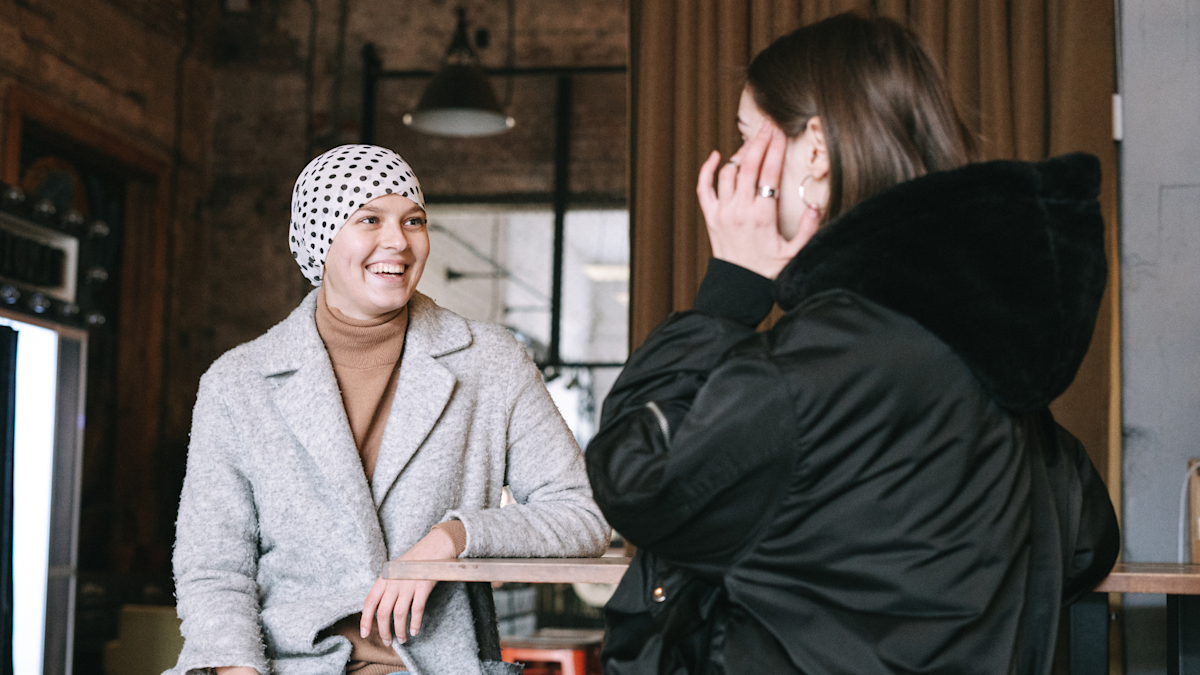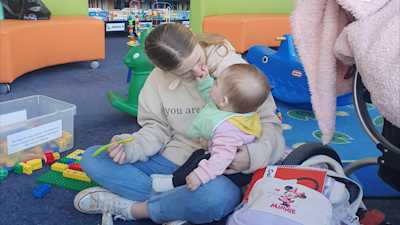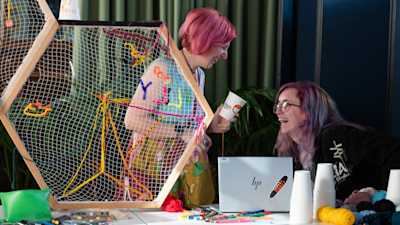“Everyone has a different story, a different life path. It’s about individualising the support to them,” Zoe said.

Image: Two young women are sitting in a café speaking to each other.
At Life Without Barriers, recovery is more than a destination, it’s a journey built on trust, compassion, and person-centred care.
Zoe Kerwick, a dedicated Community Rehab Support Worker in the Life Without Barriers' Non-Acute Psychosocial Support (NAPS) Mental Health program, has spent the past eight years walking alongside people as they navigate their mental health journeys. Zoe’s role is grounded in empathy and flexibility.
“Mental health support isn’t one-size-fits-all,” she explains.
“Everyone has a different story, a different life path. It’s about individualising the support to them.”
Whether it’s helping someone in their home, advocating at a medical appointment, navigating public transport or joining a client in a Zumba class, Zoe meets people where they’re at, literally and emotionally.
The NAPS program is designed to build capacity and independence over a 16-week period. While Zoe acknowledges the value of structured support, she also sees the need for flexibility.
“Sometimes 16 weeks is enough, sometimes it isn’t,” she says.
“Recovery doesn’t follow a timeline.”
One of the most powerful tools Zoe uses is reflection. Mental health clients begin with an Individual Support Plan (ISP), these are revisited at the halfway point and again at the end of the program.
“It helps people see how far they’ve come,” Zoe says.
“Some are surprised by their progress. They need that evidence, and our encouragement, to really believe in themselves.”
Zoe’s work often involves supporting clients in the community, whether at home or out and about.
“We’re lucky to have access to vehicles at Life Without Barriers, so we can meet people where they feel comfortable,” she says.
“Sometimes it’s about helping someone get on top of their home environment. Other times, it’s about building confidence, like accompanying someone to a group or helping them navigate public transport.”
“I’ve seen people go from being isolated and anxious to confidently attending community groups on their own,” she shares.
“It’s about building familiarity and being that safe person until they’re ready to go it alone.”
Zoe also challenges common misconceptions about mental health.
“When I moved to mental health, people warned me I’d be assaulted or working with dangerous individuals,” she recalls.
“But the truth is, people with mental health challenges are incredibly vulnerable. I experienced more physical risk in aged care than I ever have in mental health.”
She believes that while society has come a long way in reducing stigma, there’s still work to do.
“People are more open now, but there’s still judgment. If someone says they have mental health issues, they’re often misunderstood. And many people who judge probably have their own struggles, they just don’t feel safe to talk about them.”
At Life Without Barriers, Zoe has found a workplace culture that embraces openness and lived experience. “It’s a very supportive environment,” she says.
“We have access to supervision, an Employee Assistance Program, and leadership that genuinely cares. Everyone here is accepting.”
Over the years, Zoe has worked across several programs, adapting to different funding models and service scopes. From Partners in Recovery to Wellness Connect and now NAPS, she’s seen how policy shapes practice, but also how strong values and teamwork can make a real difference.
Her advice to anyone considering a career in mental health is simple: “Be open-minded and non-judgmental. And if you’re thinking of joining Life Without Barriers, go for it. It’s a great organisation with values I really believe in.”
At Life Without Barriers, we know that mental health isn’t something to be observed once a year, it’s a daily reality that lives in our workplaces, homes, and communities.
For those of us who work in mental health, walking beside people on these journeys is both a privilege and a profound responsibility. Every day, our teams see how mental health connects with housing, disability, cost of living, justice, family, and culture. Our mental health teams live and breathe it, literally. Lived experience is often at the heart of what we do.
Life Without Barriers provides a comprehensive suite of supports across Australia that respond to people’s needs at every stage of recovery. All our services are delivered with a focus on ensuring holistic wrap-around care.


